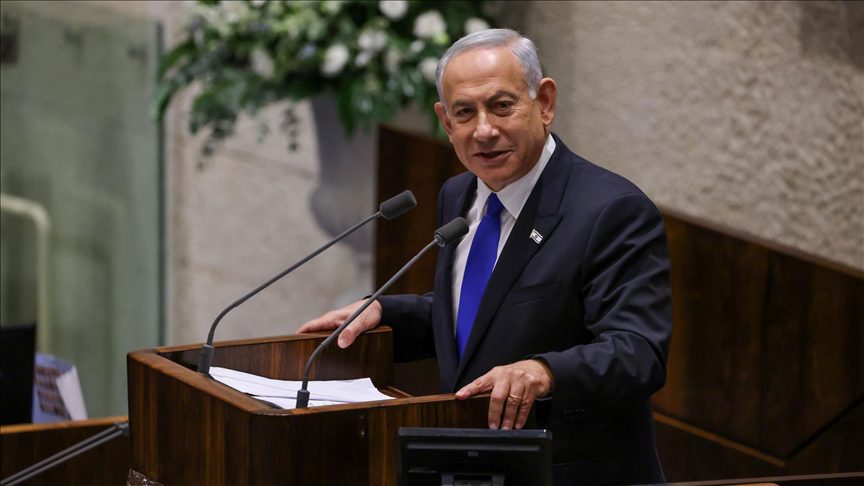Global Courant 2023-05-24 00:23:33
JERUSALEM
Israeli Prime Minister Benjamin Netanyahu reportedly agreed with the far-right Otzma Yehudit and Ultra-Orthodox United Torah Judaism Parties on the 2023-24 state budget, which will be voted on in the Knesset this week.
Far-right parties had threatened Israel’s longest-serving prime minister to overthrow the government over a budget dispute.
The Israeli coalition government has previously approved in the parliamentary committee a budget proposal of 484 billion shekels (about $132 billion) for 2023 and 514 billion shekels (about $140 billion) for 2024.
The budget allocated additional funds for the Yeshivas – traditional Jewish educational institutions – for students and staff there. One billion shekels (approximately $270 million) was included in the budget for the food aid program, organized at the request of the coalition partner Shas Party.
An additional 250 million shekels (about $68 million) demanded by far-right Itamar Ben-Gvir for the Negev, Galilee and the National Ministry of Resilience were also approved.
Netanyahu also agreed with right-wing United Torah Judaism to provide additional funding for Yeshiva students.
If the budget is not approved by the Knesset by May 29, the government will fall and Israelis will vote in early elections.
Opposition condemns allocations to Haredim
The Haredim are often criticized for being exempted from compulsory military service. Their representation in the Israeli workforce is also negligible.
The Haredim are the most religious group in Israel, with 96% saying religion is very important in their lives.
The opposition said the Haredim, which make up about 13% of Israel’s population, “get the lion’s share of the budget”.
Yair Lapid, former prime minister and leader of the Yesh Atid (Future) Party, accused Haredi politicians of “pushing not only their own children into poverty, but the entire Israeli society”.
Lapid denounced the government’s proposed state budget, saying that Israel’s middle-class tax money would be diverted to finance the unemployed Haredi population.
He said Haredi men only have an “51% employment rate” and that fewer Haredi will be entering the workforce with the proposed budget.
Benny Gantz, another member of the opposition bench, meanwhile, argued that the proposed budget created a crack.
Speaking at the party meeting, former defense minister and leader of the National Unity Party, Benny Gantz, described the budget plan as a “dividing plan” that distinguishes segments of society represented by the current coalition parties and the rest of Israeli citizens.
Former Finance Minister Avigdor Lieberman, head of the Yisrael Beiteinu party, said the proposed new budget would encourage the Haredi not to get involved in the labor business.
In a statement last week, Netanyahu called on coalition partners: “It is time to end the threats and end the boycotts. Everyone needs to work together to pass the budget of the Land of Israel and the Israeli Torah.”
Netanyahu also urged coalition partners to “work unitedly to pass the nation’s budget”.
The Israeli government is scheduled to submit the proposed 2023-2024 national budget to the Knesset for vote on Tuesday night.
Only a part of the news presented to subscribers in the AA News Broadcasting System (HAS) and in summary form are available on the Anadolu Agency website. Please contact us for subscription options.




